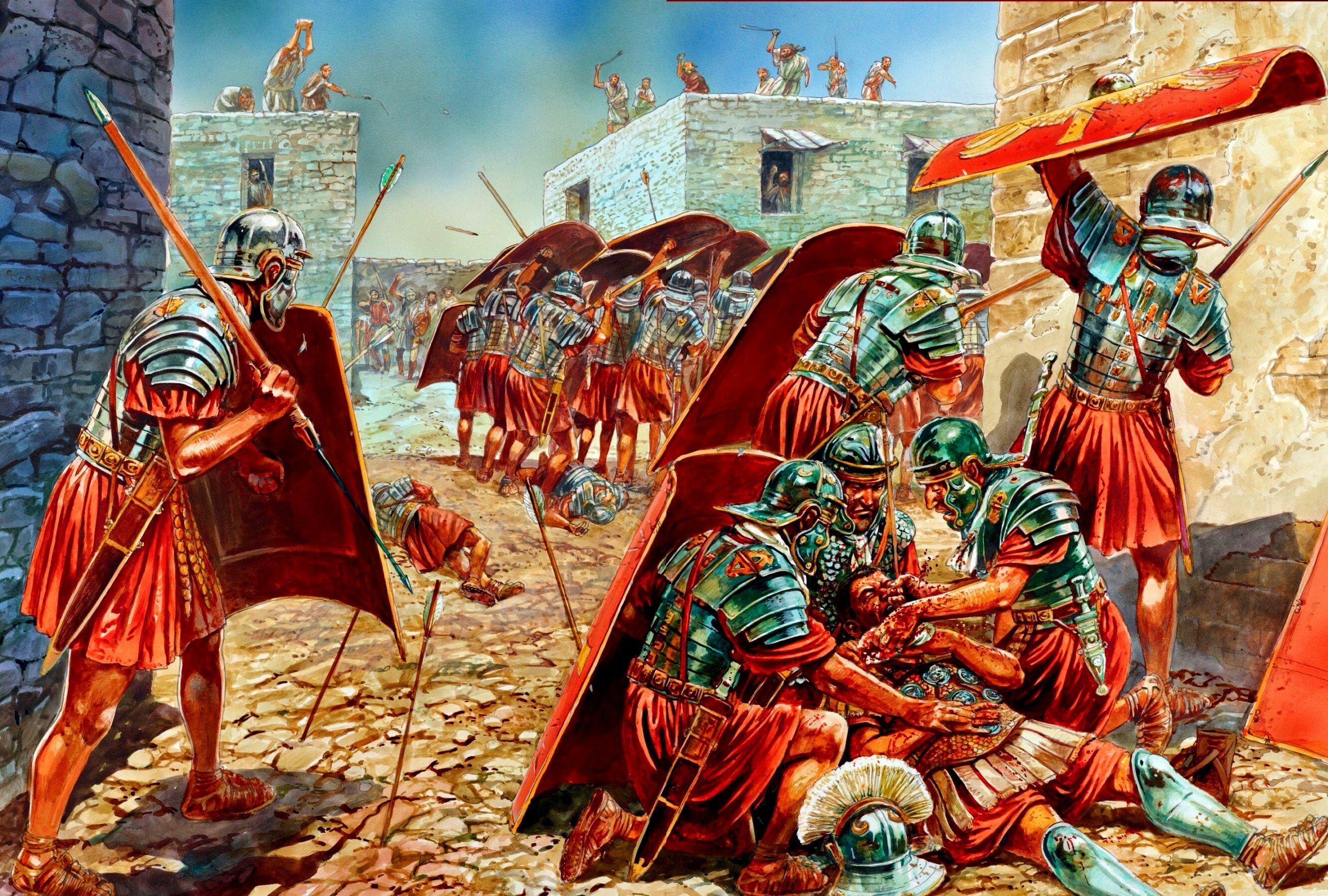In Acts 5:36, Gamaliel is recorded to have said as follows concerning the Jewish revolt of Theudas against the Roman Empire :
Pro gar toutoon toon heemeroon anestee Theudas legoon einai tina heauton, hoo proseklithee androon arithmos hoos tetrakosioon, hos aneerethee, kai pantes hosoi epeithonto autoo dielutheesan kai egenonto eis ouden.
“For before these days rose up Theudas, giving himself out to be somebody ; to whom a number of men, about four hundred, joined themselves : who was slain ; and all, as many as obeyed him, were dispersed, and came to nought.”
It is interesting to note, however, that this incident involving Theudas happened about ten or fifteen years after this alleged discourse by Gamaliel ! Hence, we are faced with a serious case of anachronism where Acts 5:36 is concerned.
Theudas is referred to by Gamaliel in his speech before the Sanhedrin, when he advised them as to the position they should adopt in regard to the apostles (Acts 5:36). The failure of the rebellion of Theudas was quoted by Gamaliel on this occasion as typical of the natural end of such movements as were inspired “not of God, but of men.” A rising under one Theudas is also described by Josephus (Ant, XX, v, 1), but this occurred at a later date (according to Josephus about 44 or 45 AD) than the speech of Gamaliel (before 37 AD).1
Raymond Brown states that :
Luke also seems to be inaccurate about that census in Acts 5:36. There, Gamaliel, supposed to be giving a speech in the early or mid 30s (shortly after the death of Jesus), mentions the uprising of Theudas, which did not occur till some ten years after Gamaliel’s speech, and compounds the error by implicitly dating the census and uprising of Judas the Galilean (A.D. 6 – 7) after Theudas.2
This error has not escaped the attention of the Biblical commentators, as they sought to postulate various explanations for this obvious historical error.
Of the theories put forward in explanation of the apparent anachronism in Gameliel’s speech, the two most in favor are (1) that as there were many insurrections during the period in question, the two writers refer to different Theudases ; (2) that the reference to Theudas in the narrative of Acts was inserted by a later reviser, whose historical knowledge was inaccurate.3
The Wycliffe Bible Commentary, appealing to methodology (1), went so far as to allege that the “Theudas” mentioned by Gamaliel in Acts 5:36 is a different person from the “Theudas” who appeared some fifteen years later :
Acts 5:36
For before these days rose up Theudas, boasting himself to be somebody ; to whom a number of men, about four hundred, joined themselves : who was slain ; and all, as many as obeyed him, were scattered, and brought to nought.He cited recent historical events to remind them that there had been other movements among the Jews that amounted to nothing, and that therefore they should have no fear of this new group who proclaimed Jesus to be Messiah. Josephus says that there were many such movements in those days of unrest. Gamaliel recalled one Theudas, who claimed to be a person of great importance and who persuaded some four hundred Jews to follow him. This movement was crushed and Theudas slain. We know nothing else about this man. About A.D. 45, a magician by the same name led a large number of Jews to the Jordan River, promising that he could separate the waters so that they could walk across the river on dry ground. The Roman governor, Crispus Fadus, sent horsemen and crushed the movement. This false messiah, however, was a different person from the one mentioned by Gamaliel.4
However, this claim seems untenable, in light of the fact the author of Acts (Luke) did not intend to write a chronological account of events, but wrote from a purely theological perspective.
Hence :
Luke’s intention “to write an orderly account” (1:3) does not imply that he gives us exact history or chronology. A study of Luke/Acts shows that Luke had shortcomings as a historian, e.g., in Acts 5:36 he has Gamaliel in the mid-30s refer in the past to a revolt by Theudas which did not occur till the 40s — and then Luke compounds the confusion by having Gamaliel refer to the revolt led by Judas the Galilean (A.D. 6) as if it came after the revolt of Theudas ! There is every reason to believe that Luke himself composed many or all the speeches he has placed on the lips of Peter and Paul in Acts. To be sure he may be reusing older material in these speeches, but Luke weaves it together in a dramatic setting.…Thus, if one wishes to use the statements in the Lucan Prologue to make prejudgments about the amount of historical precision one can expect in the infancy narrative, one must first interpret the Prologue in the light of Luke’s procedure in the body of Luke/Acts — a procedure that gives evidence of considerable freedom of composition, occasional historical inexactitudes, and a primary interest in the logical rather than the chronological.5
In conclusion, a historically erroneous document certainly cannot be “divinely-inspired”. The anachronistic error in Acts 5:36 is yet another reason why Muslims reject the status of the Bible as being the ‘Word of God’, and indeed, they are certainly most justified in doing so.
And only God knows best !
Last Updated on January 22, 2026 by Bismika Allahuma Team
Notes- International Standard Bible Encyclopaedia, Electronic Database Copyright (c)1996 by Biblesoft.[⤶]
- Raymond E. Brown, The Birth Of The Messiah (Cassell & Collier, 1977), p. 555[⤶]
- International Standard Bible Encyclopaedia, op. cit.[⤶]
- The Wycliffe Bible Commentary, Electronic Database. Copyright (c) 1962 by Moody Press.[⤶]
- Raymond E. Brown, op cit., p. 239[⤶]


